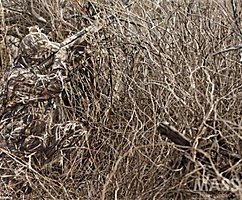Why you should not buy chicken at the store
 Bashny.Net
Bashny.Net

What can you tell about the food, the production of which you know nothing?
Journalist Philip Limbery wrote the book Farmageddon, which tells the story of how actually made popular among us food. As you might guess, good news there.
Lymbery, says that the EU put thousands of labels on the packaging of products - "natural", "farm", "no GMO," but they don't mean anything.It is clear that all the animals of meat breeds are reared on farms. It is clear that cow's meat can't be synthetic. But, as paradoxical as it may sound, these meaningless "tags" can inspire us a false sense of confidence in what we eat healthy foods.
But no one puts a label on the broiler meat chickens or pigs that were fed special feed for extra-fast growth. Chickens and turkeys eat only grain, and this is not normal. Industrial conglomerates fool our heads, using our naivety ("the State monitors these things, so that's all right").
The growth rate of broiler chickens has increased over the past 50 years four times: now before you get to the butcher, they only live for 7 weeks. Moreover, due to the fact that they are obese, they are almost not moving. If you buy over-fed farm chicken, you should know that it contains three times more fat than they should — in order to be useful. In 1970, the chickens are two-thirds consisted of protein.
Pigs and any other grown on farms for slaughter cattle have undergone the same transformation. Meat producers? No, rather, it is the fat industry.
To sick animals did not die in overcrowded sheds, they are constantly injected with antibiotics. And drugs, contributing to the exorbitant growth. These things are legal in the US and the EU, and in Russia and in most countries on the planet.
In 1953, members of the house of Commons in the United States began to warn that the practice of using chemicals in the manufacture of products may cause resistant pathogens, but their muted laughter. And only now it is obvious that they were right.
This production system harms not only you but also the planet as a whole.Farm animals consume one third of the world cereal production plants, 90% of soy products and 30% of all caught fish.
Another problem is manure. To put it absolutely nowhere, so stupid farmers "fertilize" their land. If the wheat cannot absorb all the minerals from the fertilizer in the soil, the land of "fade". Arable land are used as landfills. Contaminated forests, ponds, meadows.
And it's crazy, it seems, will never end. Experts say that the number of cattle in the world will grow by 50% by 2050.
But now we slightly soften its position. Simon Fairlie's book, "Meat: A Benign Extravagance", says that about half produced on the planet of meat, at least not harmful for your health. All because animals eat grass, which people do not consume. Unfortunately, to find such meat in the store almost impossible — as in the US and the EU. Devote time and energy to go to the farmer's market on the weekends.
Statistics show that only 2% of Americans are vegetarians. Only half of them abstained from meat for over a year. 84% do not want to give up meat principally, and the rest. I think we have stats will not favor vegans.
I don't think people will give up meat. I believe that one day we will be able to make meat in the lab. And it will hit the shelves. Perhaps this will change our social fabric.
What's wrong with eating meat only on holidays, or, say, only on weekends? To make life more pleasant and healthy, we need to look at the meat as he was seen by our ancestors. Meat is a gift, it is a privilege, not a right. Do not consume it mindlessly.
All children in schools should work together with the teacher at least once to shedit on pig or poultry farms. Let them see the conditions in which to grow the animals they eat, and draw conclusions themselves that it's safe and generally appropriate.If we can't give up old habits, we need to change at least his vision of the value of the meat. published
Source: lifter.com.ua/Pochemu-ne-stoit-pokupat-kuritsu-v-magazine#15095
Tags
See also
Have you ever bought prawns at the store?
Impressions of the work as a waitress in a Vietnamese cafe "Saigon"
Why generation Z buys as well as their parents
Guide seafood: Pangasius
Find out why you should not buy yellow bananas
What kind of fish we eat— You'll be amazed

















